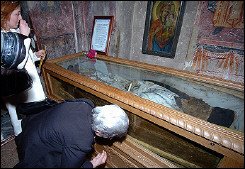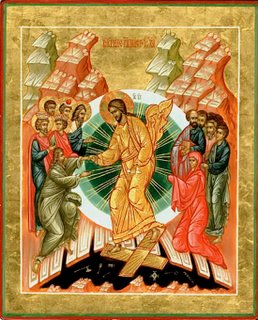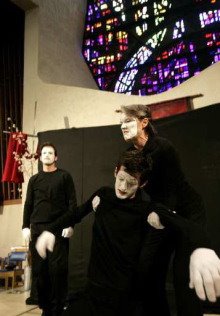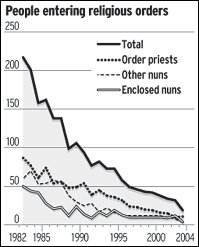Death by Ethics Committee
The following is excerpted from an article by Wesley Smith at National Review Online for April 27, 2006:
The bioethics committee at St. Luke's Hospital in Houston, Texas has decreed that Andrea Clarke should die. Indeed, after a closed-door hearing, it ordered all further medical efforts to sustain her life while at St. Luke's to cease. As a consequence, Clarke's life support, required because of a heart condition and bleeding on the brain, is to be removed unilaterally even though she is not unconscious and her family wants treatment to continue.
Andrea Clarke may become an early victim of one of the biggest agendas in bioethics: Futile-care theory, a.k.a., medical futility. The idea behind futile-care theory goes something like this: In order to honor personal autonomy, if a patient refuses life-sustaining treatment, that wish is sacrosanct. But if a patient signed an advance medical directive instructing care to continue — indeed, even if the patient can communicate that he or she wants life-sustaining treatment — it can be withheld anyway if the doctors and/or the ethics committee believes that the quality of the patient's life renders it not worth living,
Contrary to how it sounds, medical futility is not a matter of refusing treatment that will not provide the medical benefit the patient seeks. Refusals of requests for such "physiologically futile care" would be proper and professional. For example, if a patient demanded that a doctor provide chemotherapy for an ulcer, the doctor should refuse, since chemo will do nothing to treat the ulcer.
But Clarke's case involves value judgments rather than medical determinations. In such "qualitative futility" cases, treatment is stopped in spite of a patient's or family's objections — the intervention is necessary not because the treatment doesn't work, but because it does. In essence then, it is the patient's life that is deemed futile and, hence, not worthy of being preserved.
[…] Texas, however, has become ground zero for futile-care theory thanks to a draconian state law passed in 1999 — of dubious constitutionality, some believe — that explicitly permits a hospital ethics committee to refuse wanted life-sustaining care. Under the Texas Health and Safety Code, if the physician disagrees with a patient's decision to receive treatment, he or she can take it to the hospital ethics committee. A committee hearing is then scheduled, all interested parties explain their positions, and the members deliberate in private.
If the committee decides to refuse treatment, the patient and family receive a written notice. At that point, the patient/family has a mere ten days to find another hospital willing to provide the care, after which, according to the statute, "the physician and health care facility are not obligated to provide life-sustaining treatment."
[…] Cases like Andrea Clarke's could not be more important. If the principle is ever established that doctors, hospitals, and faceless ethics committees can dictate who can live and who must die, the already weakening faith of the American people in their health-care system will be seriously undermined and the door will be thrown wide-open to medical decision-making based on discriminatory hierarchies of human worth. As German physician Christoph Wilhelm Hufeland wrote presciently in 1806, "It is not up to [the doctor] whether . . . life is happy or unhappy, worthwhile or not, and should he incorporate these perspectives into his trade . . . the doctor could well become the most dangerous person in the state."
So the façade of “personal choice” that masks the “right to die” slips off, and we get to see the real face underneath. If I express, or my family opines, or a court decrees, that I have expressed a desire not to be maintained by extraordinary means, they will pull my feeding tube and let me die of thirst. If on the other hand, I express a desire for medical treatment and to continue living, the hospital can choose to off me anyway for the sake of expediency. It seems that the right to die is not the promised supplement to the God-given rights to life, liberty, and the pursuit of happiness; it is instead a replacement for them.
Like godless jesters at a feast,
They gnashed at me with their teeth.
Lord, how long will You look on?
Rescue my soul from their ravages,
My only life from the lions.
I will give You thanks in the great congregation;
I will praise You among a mighty throng.
(Psalm 35, 16-18: NASB)















